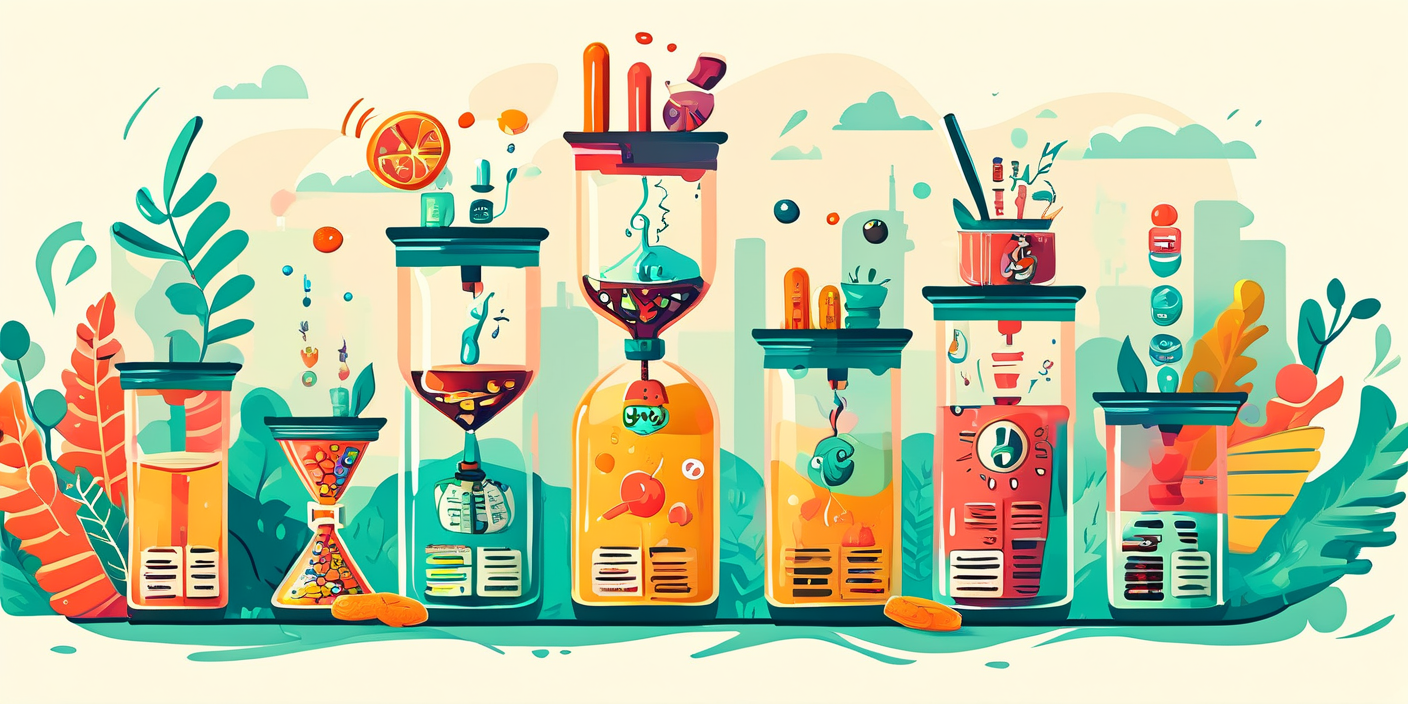Introduction: Decoding the Caffeine Timeline
We all know that caffeine provides a much-needed boost, but have you ever wondered exactly how long it takes to feel its effects? The answer isn’t a simple number; it’s a complex process influenced by various factors. This comprehensive guide delves into the science behind caffeine absorption, exploring the timeframe from consumption to peak alertness and the factors that can significantly alter this timeline.
The Journey of Caffeine: From Consumption to Effect
Once you consume caffeine, whether through coffee, tea, energy drinks, or chocolate, it begins its journey through your body. The process, from ingestion to noticeable effects, can be broken down into several stages:
Absorption and Distribution: The Initial Phase
Caffeine is rapidly absorbed into the bloodstream, primarily through the gastrointestinal tract. This absorption rate varies depending on the method of consumption. For example, caffeine in a liquid form, like coffee or tea, is typically absorbed faster than caffeine from solid forms like chocolate. The speed of absorption also depends on factors like the presence of food in the stomach. A full stomach can slow down the absorption process, delaying the onset of caffeine’s effects.
Metabolism and Distribution: Reaching the Brain
After absorption, caffeine is distributed throughout the body, eventually crossing the blood-brain barrier. This barrier protects the brain from harmful substances, but caffeine, being a small molecule, can easily pass through. Once in the brain, caffeine blocks adenosine receptors. Adenosine is a neurotransmitter that promotes relaxation and sleepiness. By blocking these receptors, caffeine effectively counteracts these effects, leading to increased alertness and energy.
Timeframe Variations: The Many Factors at Play
While the absorption and metabolism of caffeine is relatively fast, the exact time it takes to feel its effects can vary considerably. This variability is influenced by a number of factors, including:
Factors Influencing Caffeine’s Onset
1. Method of Consumption:
As mentioned earlier, liquid forms of caffeine are absorbed more quickly than solid forms. A cup of coffee will generally produce effects faster than a chocolate bar.
2. Food Consumption:
Consuming caffeine with food, particularly a high-fat meal, can significantly slow down absorption and delay the onset of effects. An empty stomach allows for faster absorption.
3. Individual Metabolism:
Each person metabolizes caffeine at a different rate. Genetic factors and liver function play a significant role. Some individuals have a faster metabolism, experiencing the effects of caffeine sooner and for a shorter duration, while others metabolize it slower, experiencing a longer-lasting effect.
4. Caffeine Tolerance:
Regular caffeine consumption can lead to tolerance, meaning you need more caffeine to achieve the same effect. This means that regular coffee drinkers may find that it takes longer for them to feel the effects of their usual caffeine intake.
5. Health Conditions:
Certain health conditions can affect caffeine metabolism. For example, individuals with liver disease might experience altered caffeine metabolism, potentially leading to slower onset or prolonged effects.
6. Medications:
Some medications can interact with caffeine, affecting its absorption and metabolism. It’s always advisable to consult a doctor or pharmacist if you are concerned about potential interactions between caffeine and your medications.
The Peak Caffeine Experience: When You Feel the Most Alert
The peak effects of caffeine typically occur within 30 to 60 minutes after consumption. However, this timeframe can vary depending on the factors discussed above. Once the peak effect is reached, the caffeine levels in your bloodstream gradually decline as your body metabolizes it. The duration of caffeine’s effects also depends on individual factors, ranging from a few hours to several hours in some individuals.
Optimizing Your Caffeine Intake: Timing and Strategies
Understanding how long it takes for caffeine to kick in can help you optimize your intake for maximum effectiveness. If you need a quick boost, consider consuming caffeine in liquid form on an empty stomach. If you prefer a more sustained energy release, consume caffeine with food.
Final Thoughts: Understanding Your Caffeine Response
The time it takes for caffeine to kick in is highly individual and depends on many factors. By understanding these factors, you can better manage your caffeine consumption to achieve your desired level of alertness and energy. Remember to listen to your body and adjust your caffeine intake accordingly. Excessive caffeine consumption can lead to negative side effects, so moderation is key.

